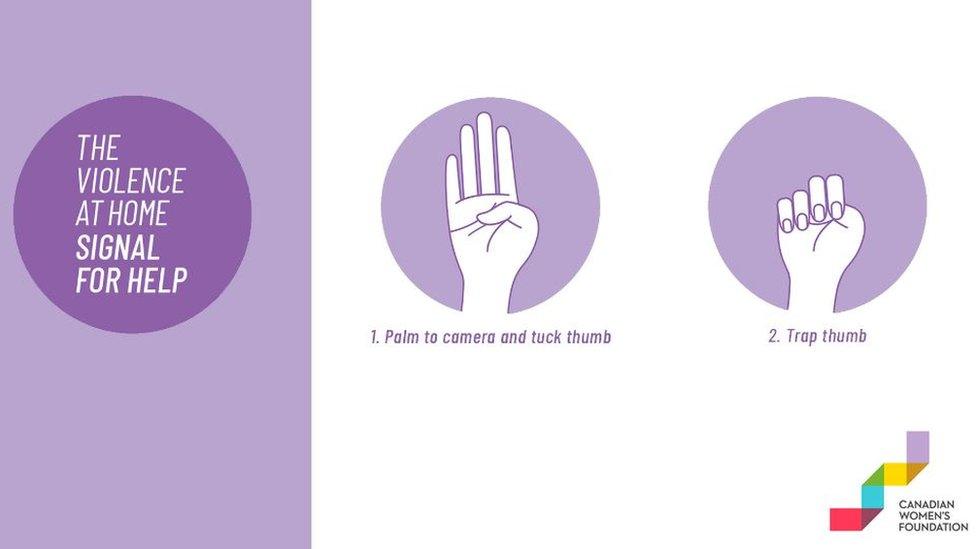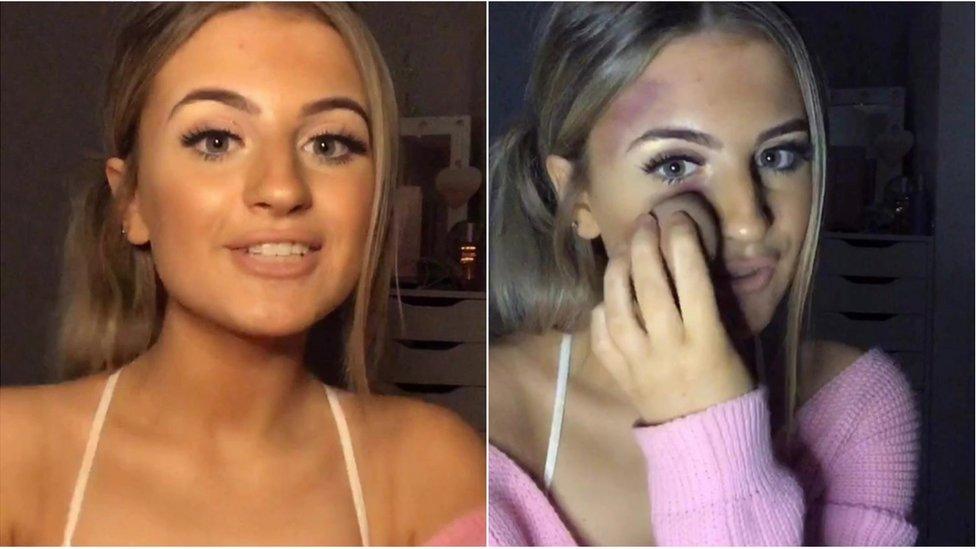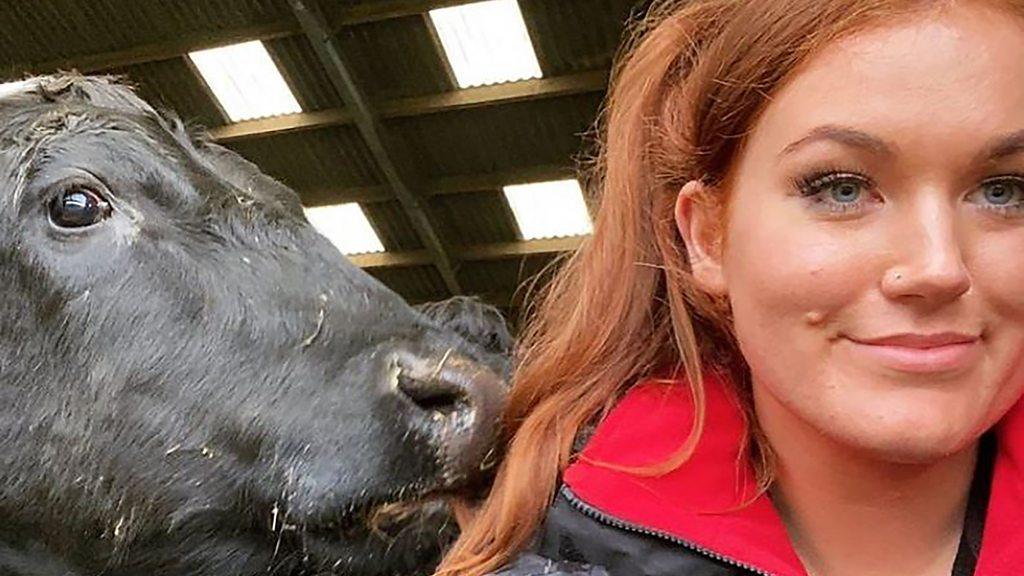TikTok: Missing girl found after using viral call for help sign
- Published

A teenager who went missing in the US has been found after she used hand signals that went viral on TikTok to show she was in danger.
The girl had been reported missing by her parents in North Carolina on Tuesday morning, and was spotted inside a car in Kentucky two days later.
The 16-year-old used the gesture designed to help domestic abuse victims ask for help to alert a passing driver.
Authorities say they arrested a 61-year-old man.
A driver called police after noticing "a female passenger in the vehicle making hand gestures that are known on the social media platform TikTok to represent violence at home - I need help - domestic violence," the Laurel County Sheriff's Office said in a statement.
Allow Facebook content?
This article contains content provided by Facebook. We ask for your permission before anything is loaded, as they may be using cookies and other technologies. You may want to read Meta’s Facebook cookie policy, external and privacy policy, external before accepting. To view this content choose ‘accept and continue’.
The caller noted that the girl "appeared to be in distress" and was being driven by an older male.
The girl, who has not been named, told officers she had travelled through North Carolina, Tennessee, Kentucky, and Ohio.
Police later arrested James Herbert Brick, 61, of Cherokee, North Carolina, while he was driving near a Kentucky interstate on Thursday afternoon.
Signal for Help

The hand gesture is a one-handed sign someone can use when in distress, according to the Canadian Women's Foundation.
The victim holds up their hand with their palm facing out, then tucks their thumb into their hand before closing their fingers on top of the thumb.
The campaign, called the "signal for help", spread across social media in 2020 during the initial pandemic lockdowns, in an attempt to address a rise in domestic violence.
Allow YouTube content?
This article contains content provided by Google YouTube. We ask for your permission before anything is loaded, as they may be using cookies and other technologies. You may want to read Google’s cookie policy, external and privacy policy, external before accepting. To view this content choose ‘accept and continue’.
The idea was a way for domestic abuse victims to seek help using a non-verbal cue.
Videos demonstrating the signs also gained momentum in the UK in the aftermath of the murder of Sarah Everard, which sparked a debate over women's safety.
- Published9 January 2020

- Published6 November 2021

- Published22 October 2021
